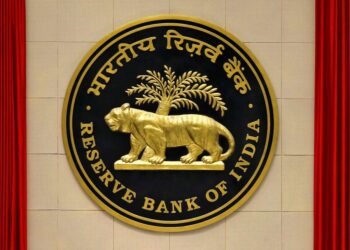Fintech became the leading industry in the first quarter of 2023, accounting for about ~45% or $1.2 billion of the investment raised by Indian digital startups, despite the pandemic, prolonged financial winter and numerous regulatory reforms.
The interesting thing to note is that this recovery comes amidst a plum in general funding. Indian startups collectively raised $3 billion in Q12023, 75% down on a YoY basis from $12 billion.
Q12023 saw a near ~126% jump on a QoQ basis, with Q42022 recording $$523 million in funding. A combination of factors, including increased investor confidence in the sector, the emergence of new fintech startups, and the ongoing digital transformation of the Indian economy, has driven this surge in funding. However, compared to the $2.6 billion raised in Q1 2022, fintech funding has decreased by 55% yearly, despite the sector showing positive quarter-over-quarter growth.
The fintech space in India saw some interesting trends in Q1 of 2023. Sequoia Capital, AngelList, and Y Combinator were the most active investors in the sector. Several companies, including PhonePe, Mintify, Insurance Dekho, and KreditBee, raised over $100 million during the first three months of the year, resulting in six $100-million funding rounds.
However, the sector remained dull when it came to public listings and new unicorns – No fintech company went public, nor did any company achieve unicorn status.
Fintech received the most late-stage funding in the first quarter of 2023, despite a significant lag in late-stage startup funding over the previous three quarters. In Q1 2023, there were 22 late-stage investment deals, compared to 51 funding deals for growth-stage businesses. The most deals were made at the seed stage during the quarter, at 102.
It is interesting to note that the fntech sector in India is among the top five geographies in terms of total fundraising activity in Q1 2023, trailing only the US in terms of investment levels.
It is predicted that by 2030, the fintech market opportunity shall be nearly $2 trillion! Also, the government’s favourable policies, phenomenal digital and internet penetration, and the push for a cashless economy are touted to immensely benefit this sector.
The bottom line
The Indian fintech sector has seen numerous challenges, including the COVID-19 epidemic, rising competition, and regulatory obstacles. But Q12023 is being viewed as a particularly strong quarter for fintech investment in India, signalling an end to funding woes. The increase in funding for fintech companies, especially in late-stage funding rounds, is evidence of greater investor trust in the industry. In the years to come, the ongoing digital transformation of the Indian economy will present an exciting growth opportunity for fintech entrepreneurs.
.








